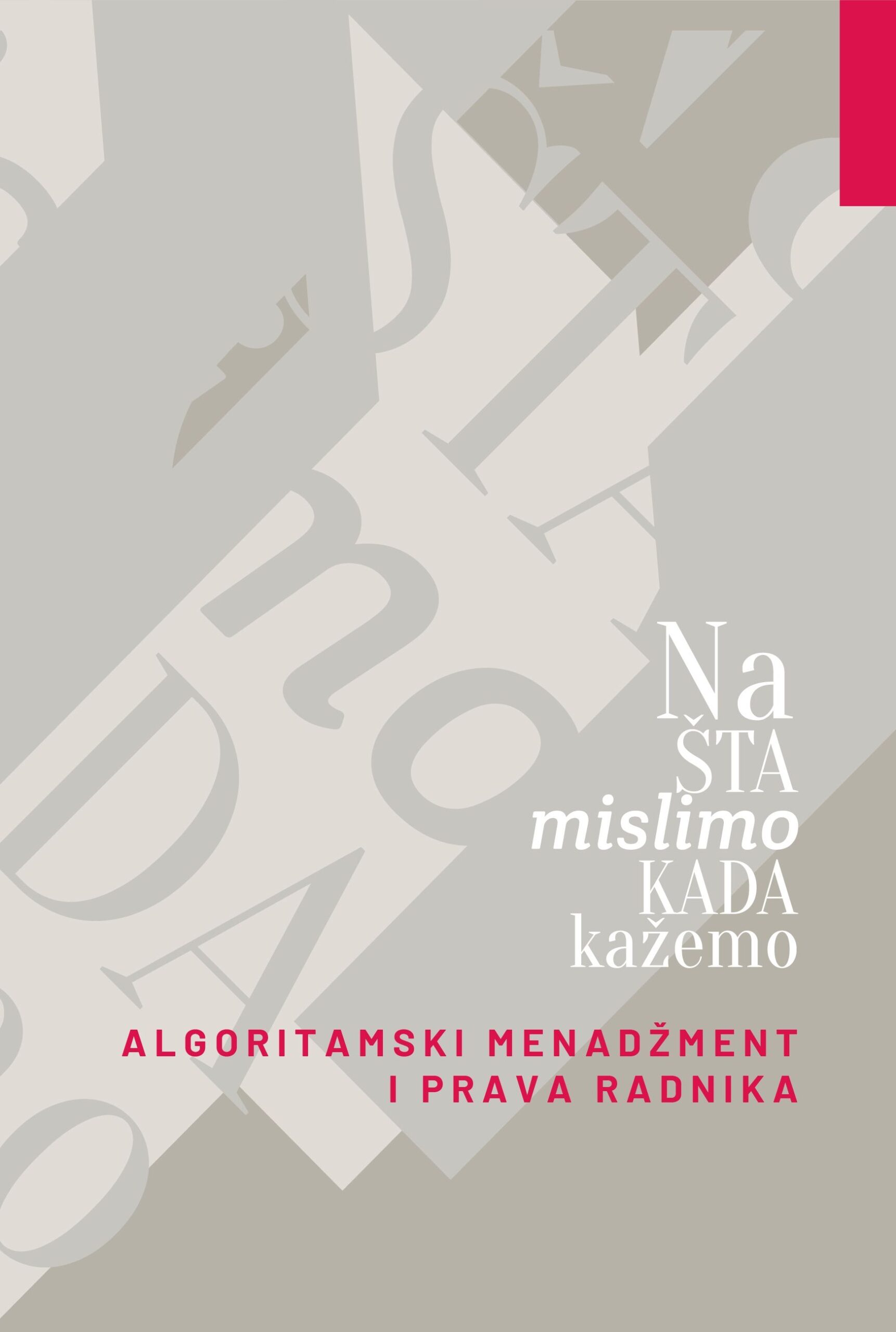
Na šta mislimo kada kažemo… Algoritamski menadžment i prava radnika
European integrations: Chapter 10 SDGs: SDG 08, SDG 10 Author(s): Darko Božičić Thematic Area: Active Citizenship and Democratic Institutions, Digital Society, Philanthropy, Solidarity, and Care Published: 2022 ISBN: 978-86-82324-04-1 Pages: 16 Language: Serbian Publisher: Institut za filozofiju i društvenu teoriju, Univerzitet u Beogradu Tags: book | More DetailsDarko Božićić’s work, Algorithmic Management and Workers’ Rights (2022), discusses the impact of information technology and artificial intelligence (AI) on labor relations, focusing on the shift from human employers to algorithm-driven management. The rise of digital platforms has led to a new form of work organization, the “”gig economy,”” where algorithms control job allocation, worker evaluation, and even compensation. Despite claims of transparency and objectivity, these systems are often opaque (“”black boxes””) and fail to protect workers’ rights. The paper critiques the negative impact on workers, such as unfair evaluations and privacy violations, and calls for legal frameworks to ensure transparency and safeguard workers’ rights, arguing for the necessity of opening up the “”black box”” of algorithmic decision-making. The integration of algorithmic management and workers’ rights into policy discussions is particularly relevant in the context of EU integration and the United Nations Sustainable Development Goals (SDGs). As countries in the Balkans and Southeast Europe align their regulatory frameworks with EU standards, the protection of digital workers becomes a critical component of labor market modernization. The EU has long emphasized the importance of labor rights and social justice within its internal policies, making it essential for candidate and potential candidate countries to mirror these values in their own legal frameworks. In this regard, adopting transparent and accountable algorithmic management practices would not only strengthen labor rights but also help ensure compliance with EU directives aimed at improving working conditions.
Linking this to the SDGs, the promotion of decent work and economic growth (SDG 8) is directly connected to ensuring that digital labor platforms respect workers’ rights and provide fair conditions for all workers, regardless of the platform’s size or nature. Additionally, achieving reduced inequalities (SDG 10) requires creating a more equitable environment for workers in the gig economy, where algorithmic bias and exploitation often widen the gap between the platform owners and the workers themselves. Addressing these issues through clear policy interventions would contribute to fostering inclusive and sustainable economic growth, aligning both EU integration aspirations and SDG commitments while strengthening social cohesion in the region.
Back
